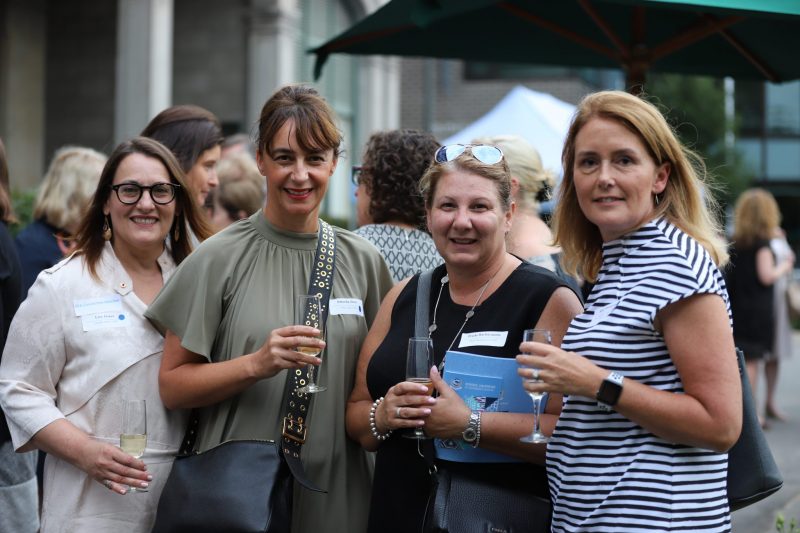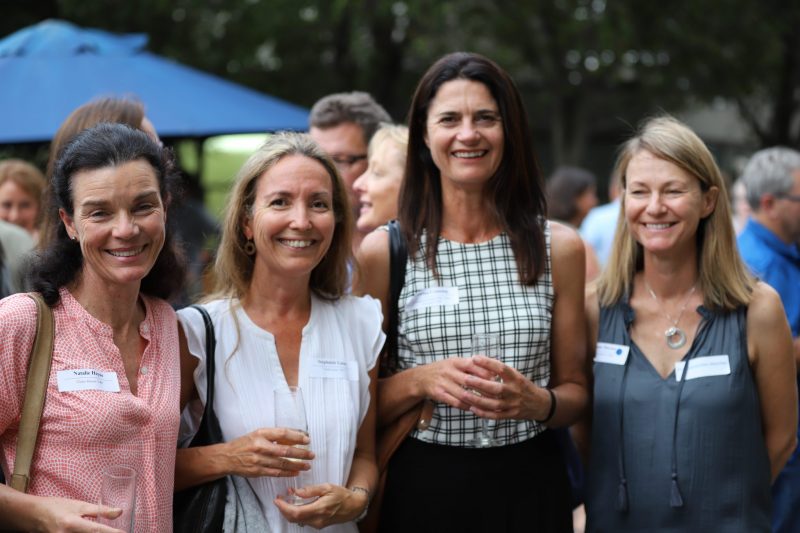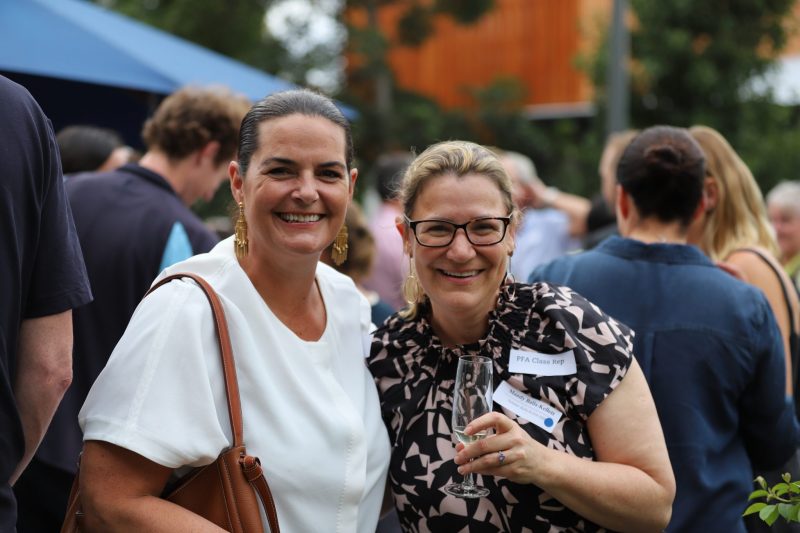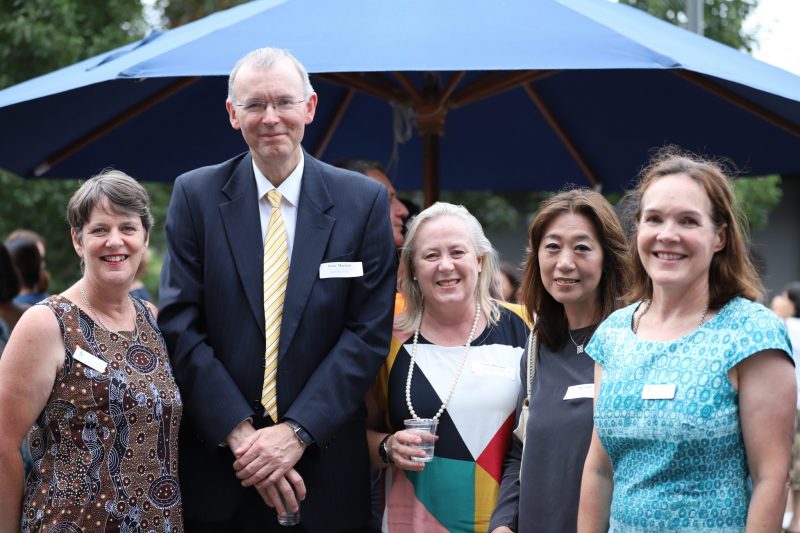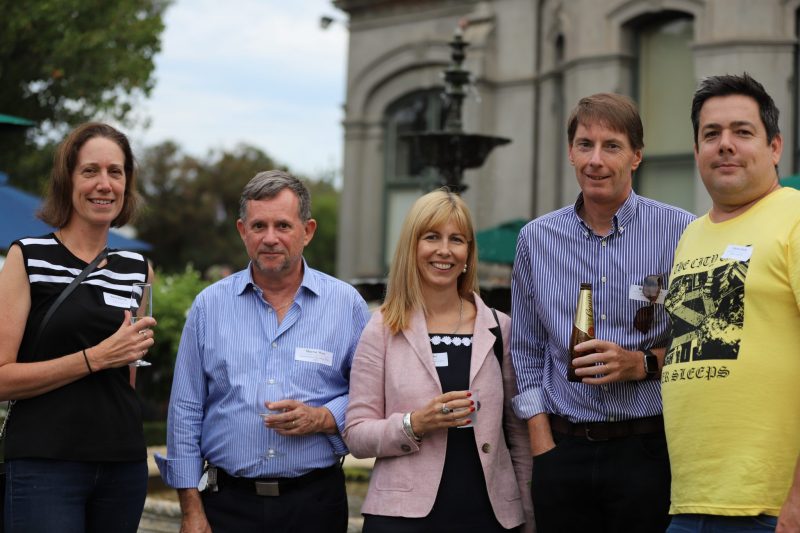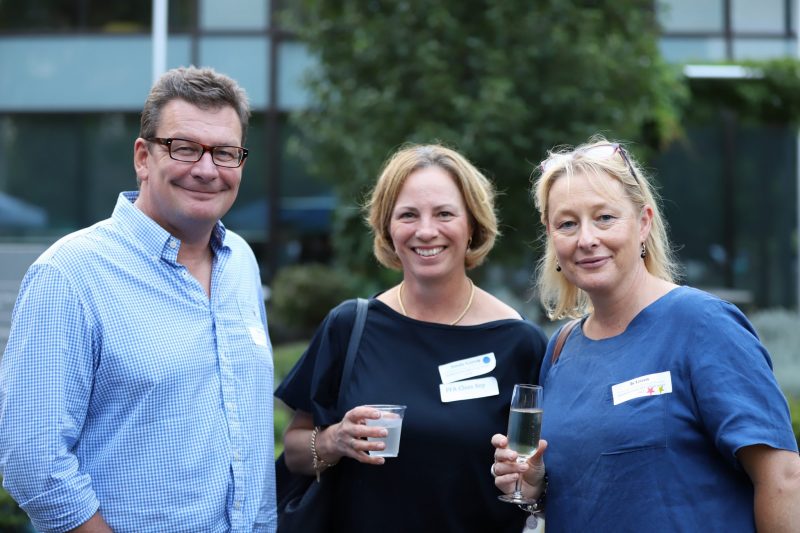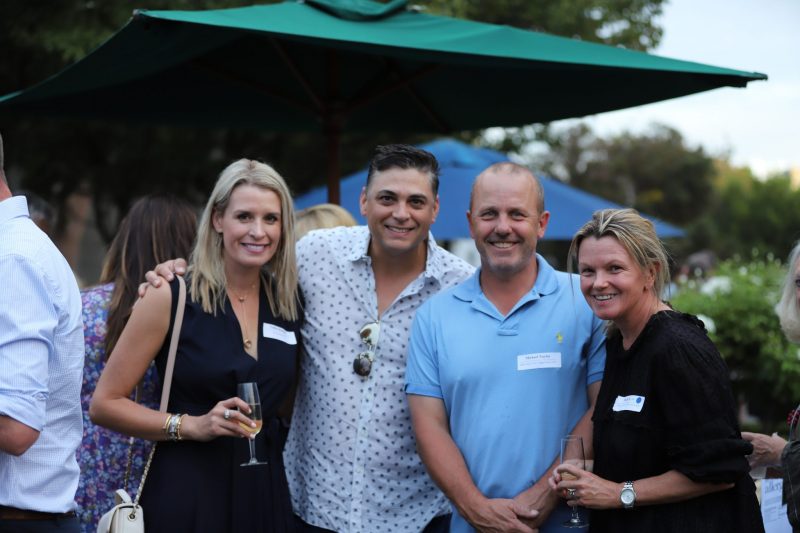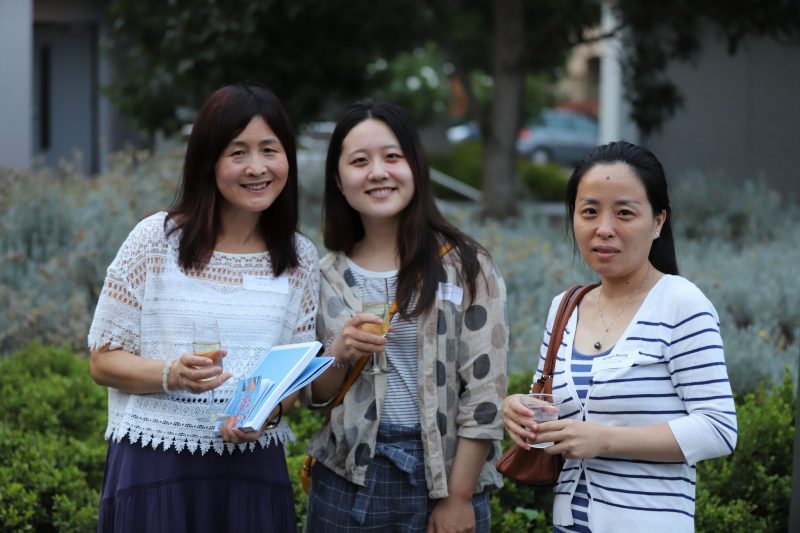The Truth About Teenage Girls

It was a pleasure to welcome many Senior School parents on Thursday evening to our Parent Information Evening and PFA Welcome Drinks. The new format of combining all Year levels was our initial step in consolidating the busy School calendar in 2018, in an effort to reduce the number of evenings parents are not at home with their families.
I provide for your reading an extract from my Welcome speech this week:
I was interested to read an article over summer in The Weekend Australian titled ‘The Truth About Teenage Girls’, notably the sub-heading reassures the reader that “adolescent angst is nothing new.” Author, Amanda Foreman includes in her article a ‘play on words’ of the poem, The Sunlight on the Garden, written by Irish poet, Louis MacNeice:
‘There are days when my adolescent daughters come down for breakfast and I’m on tenterhooks as to what the weather will be.
Will we have #sunlightonthegarden or a #coldandfrostymorning?
The question will play itself out several more times before the day is over.’
Amanda Foreman continued to describe what may be the experience of many parents. Raising adolescent girls can be likened to ‘juggling a lot of balls in the air at the same time’ with each person in the household having their own distinct and often demanding needs. The author also recognises that:
‘As a parent of a teenage girl, you can drop a few balls along the way, as long you keep the glass ones in the air.’
The glass ball is indeed more fragile and certainly more valuable. It makes sense to give the glass balls a higher priority so that they do not get damaged or destroyed. In keeping with this analogy, I pose two questions for our parents tonight:
What are the ‘glass balls to keep in the air’ as a parent?
And what are the ‘glass balls to keep in the air’ for the educators at St Catherine’s?
Some obvious suggestions come to mind: our girls’ physical health, their mental wellbeing (with managing anxiety increasingly on our radar), balancing an academic life with co-curricular commitments, a part time job or an over-enthusiastic social life. The somewhat lengthy list of 18th birthday events across Year 12 is one such ‘glass ball’ that parents are reminded to manage in conjunction with their daughters.
In recent weeks, I was delighted to hear of the announcement of the inspirational Professor Michelle Simmons, Professor of Quantum Physics at UNSW, as the 2018 Australian of the Year; a female, a scientist and a wonderful role model in largely a male domain. During her recent Acceptance Speech, Professor Simmons delivered a sharp underlying message of a need for young people to ‘defy their expectations.’ She clearly advocates for all young people:
- To pursue what they love;
- To set their sights high;
- To tackle the hardest challenges;
- To be the creators, not just the users of technology, and
- Importantly, whilst parents and teachers can influence this engagement, Professor Simmons advocates it ‘must come from within’.
I also appreciated comments by Simmons regarding the impact of great teaching, that being, ‘great teachers place high expectations on their students, challenging them to be the very best they can be.’ For educators, ‘placing high expectations on our students’ is a glass ball.’
Members of our audience will be aware of Sheryl Sandberg’s international bestseller Lean In; a book advocating for an encouragement for women to lead, it is now somewhat of a catch phrase for empowering women. However, tonight, I wish to describe a different type of ‘lean in’ – an encouragement for our girls to ‘lean in to the challenge of their learning’.
When our young women are challenged, or uncomfortable, it is often a time of personal growth. Through this growth, we emphasise the importance of talking to students about the way they approach their studies or indeed any challenges they face. They need to understand that it is not just about spending time and wanting to improve. It is about thinking about the strategies which will be useful, changing them regularly, seeking feedback and practising. It is not just about ‘effort’. One needs to learn skills that use your brain in a smarter way… You actually have to practise the right way… to get better at something.
In the words of Samuel Smiles (1859): ‘We learn from failure, much more, than from success’. It is from experiencing some mistakes, that we build resilience and one’s emotional agility. This is said with the best of intentions, eventually students do have to grapple with life in all its complexity. Too often I see girls avoid challenge in an effort to maintain a ‘perfect order’ in their lives. An unhelpful perfectionism, where girls can typically see a mistake as a failure, can have a crippling effect on ones’ curiosity and openness to learning.
This year, we enter the third year of our partnership with Swinburne University. This partnership has enabled the sequential development of a Prep to Year 12 Emotional Intelligence Program, aiming to equip the girls with strategies to:
- Combat the constant self-criticism and comparison with others;
- Reduce rigid thinking and a growing problem of anxiety; and
- Be critical consumers of media and social media.
So how might a ‘Lean IN to the challenge of learning’ look for our girls in the classroom?
We encourage girls to question their teachers. They need to question everything, especially test questions they get wrong. This attitude is important because it shows a general inquisitiveness that is essential in learning. Teachers cannot be offended when a student asks a difficult question and parents should encourage this behaviour.
Our best students ask the most difficult questions.
We are determined in our focus on academic endeavour and encouraging each girl to be the best version of herself. It is my hope that we can work with you, so our students and your daughters will be hearing the same message from parents and teachers.
And for our parents:
I encourage you to ‘listen like a trampoline’ – absorb the message and then try to add height and perspective to the conversation.
I wish you a great year ahead and encourage open communication from home to School, so that your daughter’s Head of Year, our Heads of Faculty and her teachers are aware of any issues that might have an effect on her learning or happiness.
I conclude with a return to MacNeice’s poem for when you reflect on your daughter’s educational journey:
‘Be glad to have sat under the thunder and rain with you, and grateful too for the sunlight on the garden.’


